The RFI van, affectionately known as the Ice Cream Truck, with its enormous antenna raised to collect radio frequency interference in the surrounding countryside. Photo taken in October 1981.
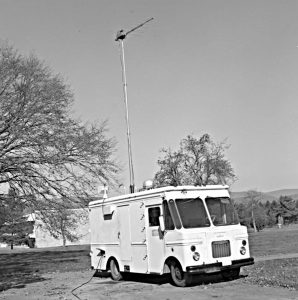
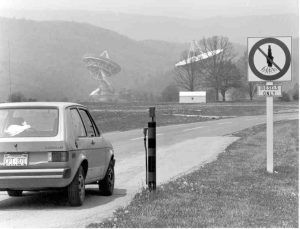
No Spark Plugs in Zone 1
The electric spark in a spark plug generates a more powerful burst of radio waves than that which our telescopes receive from objects in space. Vehicles using spark plugs are strictly forbidden inside the telescope zone, called Zone 1, in Green Bank.
Diesel vehicles, like this old VW Rabbit, don’t use spark plugs. We maintain a fleet of diesel vehicles for use inside Zone 1.
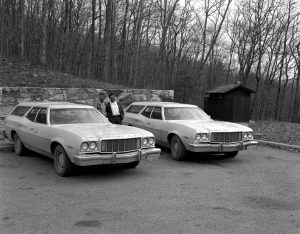
Before the Internet
Anyone who observed in Green Bank from the mid-1960s through the 1980s was familiar with the shuttle. Every morning, 365 days a year for many years, vehicles left both Green Bank and Charlottesville and met in the parking area off U.S. Rt. 250 at the top of Shenandoah Mountain in the George Washington National Forest. The drivers traded the vehicles with their passengers/cargo and then returned to their office of origin. People (both visitors and NRAO staff), equipment, data tapes, interoffice mail – all traveled between Green Bank and Charlottesville on the shuttle. In this November 1977 photo, long-time drivers Merle Kerr (Green Bank) and James Garland (Charlottesville) and their vehicles are at the exchange point on Shenandoah Mountain.
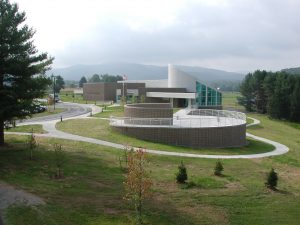
Science Center Grounds
The Green Bank Science Center offers exhibits, live demonstrations, food, shopping, and tours. However, Its grounds are also marked for exploration of the natural landscape of Pocahontas County. Birdwatchers and butterfly enthusiasts stroll the wildflowers and grasslands here.
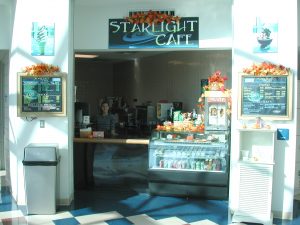
Starlight Cafe
The Green Bank Science Center caters to its visitors with a menu of fresh foods from the Starlight Cafe.
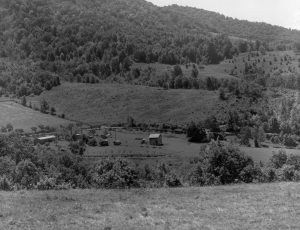
Pocahontas County
Critical to the success of radio astronomy in Green Bank is the rural environment of Pocahontas County. Our telescopes need to be free of the interference of modern electronics. This photo, taken in the 1950s, shows one of the farms purchased for the new observatory. The area has not changed much since then.





